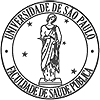Research line: environmental management and urban sustainability
Focusing on the urban environment, this line aims to enhance and apply concepts of sustainability to diagnose and contribute to environmental management, interpreting cities as open systems, by their influence and dependence on ecosystem life support, of raw materials, energy, environmental service’s providers, etc. Construction, implementation and evaluation of policies, intersectional planning and environmental management in public and private spheres are discussed. It is hoped that the research approach interferes positively in different degrees of intensity, temporal and spatial scales, the environment and human health, considering the care of current needs and conserving resources to meet the demands of future generations.
Supervisors: Arlindo Philippi Jr.; Delsio Natal; Eduardo Mario Mendiondo; Gabriela Marques Di Giulio; Helena Ribeiro; Leandro Luiz Giatti; Maria Regina Alves Cardoso; Maria da Penha Vasconcellos; Paulo Cesar Xavier Pereira; Renata Ferraz de Toledo; Rodolfo Andrade de Gouveia Vilela; Rubens de Camargo Ferreira Adorno; Tadeu Fabricio Malheiros; Wanda Maria Risso Günther; Wanderley da Silva Paganini.
Research Line: Management in environmental sanitation
Include the identification of environmental sanitation interfaces with human health and environment, seeking to study and establish processes for managing sanitation systems that may affect the health indicators and quality of life of populations. It involves studies on quality of environmental compartments (air, water and soil) and environmental sanitation systems and technologies, focusing on policy, planning and management and evaluation of services.
This line focus in these topics:
- Management and use of natural resources;
- Use / reuse water; Management of environmental quality (air, water and soil) in collective systems, and isolated unit;
- Deployment and management of sanitation systems (water, sewage, effluent, drainage and waste);
- Management of urban, industrial and special waste, degraded and contaminated areas;
- Environmental contaminants and pollution control systems (air, water and soil);
- Vulnerability and adaptation of systems and sanitation services in facing the complications of the climate changes.
Supervisors: Arlindo Philippi Jr.; Ednilson Viana; Eduardo Mario Mendiondo; Gabriela Marques Di Giulio; João Vicente de Assunção; José Luiz Negrão Mucci; Marcelo Antunes Nolasco; Roque Passos Piveli; Tadeu Fabricio Malheiros; Wanda Maria Risso Günther; Wanderley da Silva Paganini.
Research line: Surveillance in environmental health and worker
It includes investigations concerning knowledge, identification and analysis of environmental determinants and labor representing risks and hazards to the human population in order to establish policies to minimize and / or reduce such exposures. It is also proposed to establish dialogue with uncertainties and limitation of inherent risks not yet recognized that demand a performance under the precautionary principle. This line contributes demands arising from public policy to strengthen the Environmental Health Surveillance and Occupational Health, conducted by the Ministry of Health, which extends the decentralization process, constituting a relevant strategy for comprehensive health care. It thusmay contribute to the consolidation of the National Network of Comprehensive Health Care Worker and Environmental Health Surveillance subsystems, as Vigiágua, Vigisolo, etc. Vigidesastres., Among other initiatives associated with this policy.
Supervisors: Delsio Natal; Ildeberto Muniz de Almeida; João Vicente de Assunção; José Marçal Jackson Filho; Leandro Luiz Giatti; Maria Dionísia do Amaral Dias; Maria Regina Alves Cardoso; Maria Tereza Pepe Razzolini; Rodolfo Andrade de Gouveia Vilela.

